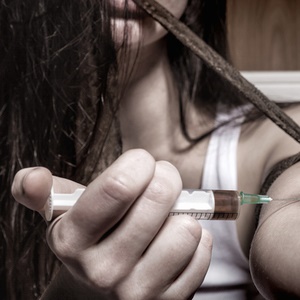
Heroin has been available for more than a century. The appeal of this drug is the intensely pleasurable sensation it creates as a result of dopamine flooding the brain.
Heroin is a dangerous drug, and according to a News24 report it is currently a big problem in Pietermaritzburg, South Africa. Over the past few years, heroin has become the drug of choice for many South Africans.
What happens to your body immediately after heroin is taken?
As soon as heroin is smoked, ingested or injected straight into your blood stream, the drug activates certain receptors in your brain. These are called neurotransmitters and are responsible for feelings of euphoria. You experience a rush and a feeling of intense pleasure.
However, the heroin-filled blood doesn't just affect your neurotransmitters – it starts to affect the part of the brain that is responsible for your breathing and heart rate. You will now probably experience an elevated heartbeat, a dry mouth and sometimes nausea, dizziness and vomiting.
Heroin first makes you happy – and then things go bad
Heroin is a very addictive drug and your body will quickly become dependent on the substance. Repeated use changes the physical structure of the brain and can alter the DNA of your body. Your brain’s white matter starts to decrease over time, which may severely affect your behaviour, emotions and cognitive ability.
Withdrawal can be intense and appear hours after taking the drug. Symptoms of withdrawal include:
- Nausea
- Vomiting
- Cold shivers
- Muscle and joint pain
- Severe stomach cramps
What happens when you overdose on heroin?
1. You forget to breathe
When your body can no longer handle the amount of heroin, your respiratory and central nervous system takes strain. According to The Recovery Village, your body “forgets” to breathe and doesn’t “wake up” in time to start breathing normally again.
2. Your heart starts malfunctioning
Another thing that can cause death during a heroin overdose is an irregular heart beat (also called arrhythmia). During this condition, your heart is unable to pump the correct amount of blood through your body to supply your other organs with enough oxygen. This can cause your body to shut down.
Your heart can also be affected by a condition called infectious endocarditis, an infection on the heart’s surface. Studies have shown that people who administer heroin through needles (intravenously) are 300 times more likely to die because of a heart-related condition.
3. Your nervous system shuts down
Any type of opioid drug disrupts the natural production of norepinephrine, an organic compound in the brain that works as a neurotransmitter.
This causes any pain sensation to be blocked, making you increasingly drowsy. Eventually, everything shuts down – your blood pressure drops, your heart rate slows down and your breathing is affected.
As your body develops a tolerance for heroin, you start needing larger quantities to get that pleasurable rush. As you start taking more and more of the drug, your risk of an overdose increases.
4. Fluid backs up in your airways
Excess fluid in the lungs is called pulmonary oedema. This can cause you to choke to death. Many drugs, including heroin, cocaine and even aspirin, can cause pulmonary oedema.
What are the physical warning signs of a heroin overdose?
According to Harm Reduction Coalition, the following symptoms may be present when you are overdosing on heroin:
- Slow, shallow or erratic breathing
- Losing consciousness
- Choking or gurgling noise from the throat
- Blue, purple or black lips or fingernails
- Vomiting
- Limp body
- Slow or no pulse
If someone looks like they are sleeping, don't assume that they are simply "sleeping off" the effect of the drug. Always act fast if you suspect an emergency as their airway might already be blocked, their tongue might fall back into their throat or they might be choking on vomit. Call an ambulance.
What should you do if you suspect someone close to you is addicted?
A heroin dependence can be deadly and it is important to get help. The South African Depression and Anxiety Group (SADAG), together with the Department of Social Development, launched a toll-free helpline for substance abuse. The number is 0800 11 8392 and hours are Monday to Friday from 08:00-19:00, Saturdays from 08:00-17:00 and Sundays from 09:00-13:00.
Image credit: iStock




 Publications
Publications
 Partners
Partners










